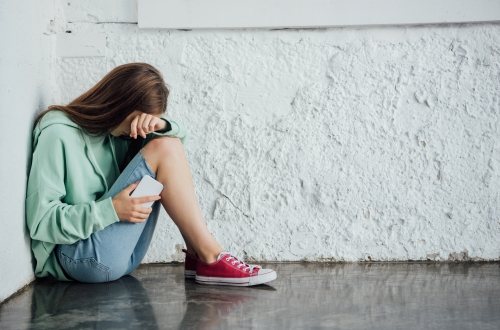Working towards inclusive social media
With this project, the Rathenau Instituut aims to contribute to safer online environments. (Photo: Mapbox - Unsplash)

New research shows that on social media lhbtiq+ people are having an increasingly hard time. The Rathenau Instituut and designer collective idiotēs are working with them to create an online environment where they can feel at home.
Before the advent of social media platforms, the internet was a place where you would often venture anonymously into forums, blogs and other corners to talk about your interests and pursuits with like-minded people. On forums, you chose an appropriate username and no one would ever find out that you were babyshark93894292. For lhbtiq+ individuals, that internet was a refuge to share their experiences and thoughts, when classmates or family could not provide that safe haven.
Intolerance and hate
De Groene Amsterdammer and Data School of Utrecht University showed last month that lhbtiq+ individuals are increasingly facing intolerance and hate on the internet. On Telegram, Twitter and Instagram, the number of intolerant and hate reactions has doubled since 2020, on YouTube it has even tripled. Trans people have a particularly tough time online: in the past year, the number of intolerant and hateful expressions increased by 67%.
With the rise of social media, billions of users have united on a handful of platforms. Finding like-minded people has therefore become a lot easier than on the fragmented internet of pre-social media. Certainly TikTok is known as a place where lhbtiq+ individuals know how to find each other. But social media has a big downside. Expressions of users are visible to anyone anywhere in the world. Algorithms push eye-catching content to the top of users' timelines where masses of trolls and users are ready to raze it to the ground.
Such online hatred and intolerance, as interviewees in De Groene Amsterdammer tell us, is not so easy to put aside. Especially when you realise that social media plays a central role in people's lives. The design and policies of a relatively small group of tech companies that dominate our social media landscape permeate our Dutch society. This makes platform design and content moderation more important than ever.
Underlying mechanisms
Of course, design choices and content moderation as such cannot eliminate discrimination. Intolerance and hatred of these groups has also increased outside social media platforms. But previous research by the Rathenau Instituut has shown that underlying mechanisms of social media, such as scalability and the attention economy, can indeed fuel harmful behaviour.
Such mechanisms are not a natural phenomenon, but often the result of design choices made by actors pursuing certain goals. Marginalised groups are also more easily targeted for harmful behaviour than other groups. Accomplishments such as the emancipation of lhbtiq+ individuals can thus ultimately come under pressure.
How do we create online environments where lhbtiq+ persons can feel at home? The Rathenau Instituut and designer collective idiotēs are researching this together with lhbtiq+ persons. We will discuss improvements in content moderation, such as the lack of enforcement of platforms' own policies, and shifting responsibility from the victim to the party engaging in harmful behaviour. Higher privacy standards are also deemed important, given the insecurity experienced by lhbtiq+ individuals.
Pluralistic platform
The main underlying question is whether the larger platforms can be made safer for lhbtiq+ individuals at all, or whether they are forced to resort to their own online platforms. Meanwhile, as the Groene Amsterdammer showed, lhbtiq+ groups are becoming quieter and less visible, and are becoming displaced from the internet. This has to change. Next spring, we will present our prototype and research. With this research project, we will offer concrete tools to platforms and policymakers to make online environments more inclusive. Hopefully, we will thus help make the internet the pluralistic platform it once was.
This project has been made possible by funding from the SIDN Fonds.

